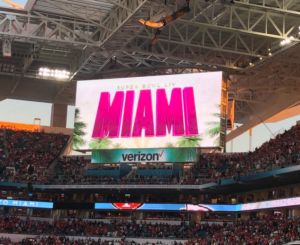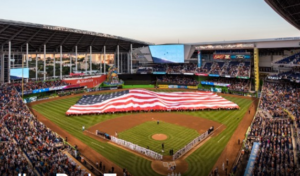MOBILE SPORTS REPORT is pleased to announce the Spring 2020 issue of our STADIUM TECH REPORT series, the ONLY in-depth publication created specifically for the stadium technology professional and the stadium technology marketplace.
Our latest issue contains an in-person report on the new Dickies Arena in Fort Worth, which may have just set the new standard for excellence in an arena experience. We also recap another record Wi-Fi day at Super Bowl LIV, as well as a DIY Wi-Fi network at Rutgers University.
You can READ THE REPORT right now in our new flip-page format, with no registration required!
For those who prefer the PDF, you can also download a copy of the report for free as well!
We’d like to take a quick moment to thank our sponsors, which for this issue include Corning, Boingo, MatSing, Cox Business/Hospitality Network, Comcast Business, Samsung, and American Tower. Their generous sponsorship makes it possible for us to offer this content free of charge to our readers. We’d also like to welcome readers from the Inside Towers community, who may have found their way here via our ongoing partnership with the excellent publication Inside Towers. We’d also like to thank the SEAT community for your continued interest and support.









